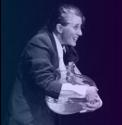
SITI Company Summer Training Programme
A few places are still available on the:
SITI Company
Summer Training Programme
Falmouth, Cornwall, July 13 - 25, 2015
presented by CPR and the Academy of Music and Theatre Arts, Falmouth University
A two-week intensive programme suitable for both professional and pre-professional theatre artists, led by two members of the celebrated New York SITI company, Barney O’Hanlon and Gian-Murray Gianino.
“This has been one of the most intense, brilliant, life-changing, inspirational and growing experiences of my life. I will treasure the learning and new awareness throughout my career and cannot wait to add them. I wouldn’t hesitate in recommending this training to committed theater practitioners.”
—Ali Kennedy Scott, Saratoga 2012
Apply by 31st May to guarantee a place in local campus accommodation
To apply or for queries please email Siu-lin at s.rawlinson@thecpr.org.uk
Classes will include:
SUZUKI METHOD
Developed by internationally acclaimed director, Tadashi Suzuki and the Suzuki Company of Toga, the Suzuki Actor Training Method’s principal concern is with restoring the wholeness of the human body and voice to the theatrical context and uncovering the actor’s innate expressive abilities. A rigorous physical discipline drawn from such diverse influences as ballet, traditional Japanese and Greek theatre and martial arts, the training seeks to heighten the actor’s emotional and physical power and commitment to each moment on the stage. Attention is on the lower body and a vocabulary of footwork, sharpening the actor’s breath control, Vocal Strength, focus and concentration.
VIEWPOINTS
Originally developed by the choreographer Mary Overlie, the Viewpoints is a philosophy of improvisation that grew out of the postmodern dance world. Ms. Overlie broke down the dominant issues of time and space into six categories, calling this approach The Six Viewpoints (www.sixviewpoints.com). SITI Company has continued to research these notions, adapting and expanding them for theatre artists. The language of the Viewpoints allows artists to create together spontaneously and intuitively. It fosters a sense of ensemble, as well as deepens the individual’s sensitivity while onstage. The practice of the Viewpoints develops an artist’s awareness how to read what is being made in the process of making. It strengthens an artist’s articulation, and clarifies emotional, intellectual and physical flexibility.
COMPOSITION
Practice in collaboration and devising original work
MOVING
An introduction to exploration of certain contemporary dance and moving practices, to expand range and expression
SPEAKING
An introduction to a unique approach to speaking to help the actor meet the practical and aesthetic demands of rehearsal and performance.
SITI
Founded in 1992 by Anne Bogart and Tadashi Suzuki, SITI is built on the bedrocks of ensemble and collaboration. A seven-time Obie winner, the company has presented more than 35 new productions in 22 countries on five continents. Through performances and collaborations with other artists and thinkers, SITI Company continues to challenge the status quo, to train to achieve artistic excellence in every aspect of their work, and to offer new ways of seeing and being as artists and global citizens.
SITI Company is renowned for its unique approach to theatre training, based upon a symbiotic pairing of the Suzuki Method of Actor Training and the practice of Viewpoints. Whilst the Suzuki method and Viewpoints are distinct from one another and are taught as such, they share hallmarks that include collaboration, rigor and addressing the meeting point where the individual encounters the ensemble. The influences on both these trainings range from classical Greek theatre to post modernism. Together they offer an alternative to current practices in actor training that focus primarily on psychological and emotional approaches. The trainings are not intended to dictate a stylistic approach, rather they serve as a foundation for any avenue a theatre artist wishes to pursue artistically.



